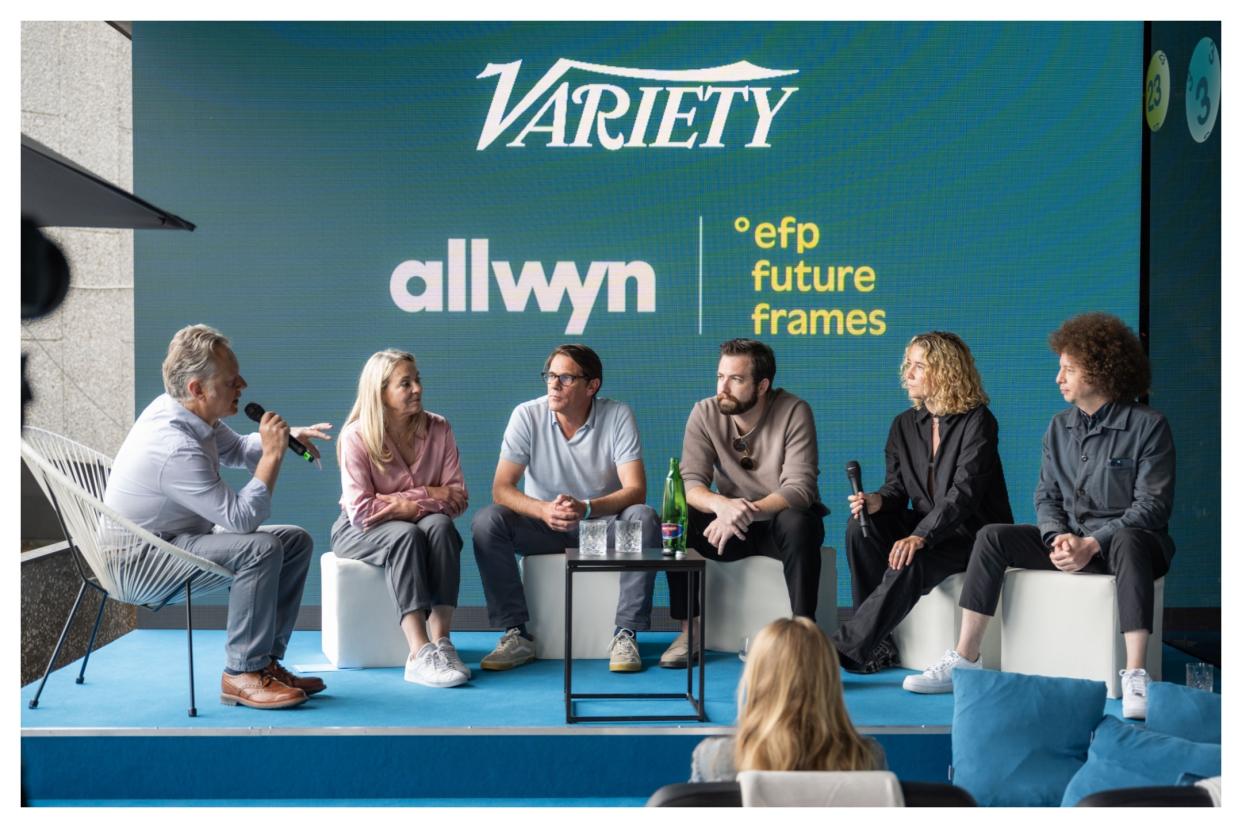Future Frames Organizers, Backers Explain How the Program for Young Talent Transforms Lives

At the Karlovy Vary Film Festival this week, the Future Frames program, which acts as a springboard for up-and-coming European directors, celebrated its 10th anniversary. During a panel discussion staged by Variety, organizers and backers of the program explained how Future Frames transforms the lives of young filmmakers.
Kicking off the discussion, Sonja Heinen, managing director of European Film Promotion, which organizes the initiative, explained that the 37 film institutes that are represented by EFP nominate up to two young filmmaker each. “These are outstanding people from their country,” she said. Then the programmers from Karlovy Vary select the 10 filmmakers who take part in the Future Frames program, and their short films screen at the festival.
More from Variety
While they are at the festival, the participants get to meet a range of industry professionals. “We can help them with their entrée into the international market, so we match-make them with producers, funds, sales companies and agents so that they get a better understanding of what is expected of them out there,” Heinen said.
Future Frames is supported by multinational lottery operator Allwyn, whose executive Will Oscroft explained how the company’s backing for the program fitted into its broader strategy.
“I think by the nature of playing the lottery, it’s ultimately about transforming lives. And that’s something that Allwyn is committed to and which drives a large part of our thinking when it comes to any sponsorship, or any partnership, or any of our corporate social responsibility. We’re trying in our own small way to change lives a little or a lot, but always for the better,” he said.
The program is also backed by U.S. talent agencies United Talent Agency and Range Media Partners. UTA agent John McGrath explained that as well as sitting down with the filmmakers in Karlovy Vary and advising them on how to take their next steps in the industry, they also oversee the second stage of the program, which is a one-month scholarship program for one of the filmmakers in Los Angeles.
“[In L.A.] we set them up with producers, financiers, distributors, kind of anyone that they potentially need a touch point with on their next project. It is an opportunity to dive deeper into what the industry looks like out in Los Angeles and the U.S., to further their education and maybe even help facilitate that next step toward making their first feature,” he said.
Amalie Maria Nielsen, the recipient of last year’s Future Frames scholarship, spoke with warmth about what it was like to take part in Future Frames.
“It was a really great experience. Meeting nine other young directors from all over Europe, becoming friends, and sharing your passion with people from different countries was just really new for me and one of the greatest things I took back home with me,” she said. “And there is a lot of attention while you’re here. A lot of people want to know who you are and what you want to do with your next project, and that attention is really nice to get.”
Nielsen also spoke about the L.A. scholarship program and the contacts she was able to make there. “I didn’t know what I was going into, but I was taken really good care of by Allwyn, Karlovy Vary, UTA and Range,” she said. “They really took my hands and were like, ‘Come. Let’s show you how this industry works.’ And for me, it was really new, because I’m from Denmark, and that’s not similar to the U.S. at all. So, it was a totally new world to get into and get to know. I met a lot of really important experts who have been making films over there for many years, and that bridge-building was one of the most important things while I was there: getting new contacts, and building relationships that can be used, if necessary, for the projects I’m working on.”
Mexican filmmaker Michel Franco, who acted as a mentor to the Future Frames participants this year, said that rather than delivering a “masterclass,” as had been billed, he instead engaged in “a talk among colleagues.” As well as watching their short films, he screened for them his second feature “After Lucia,” which he made on “a very small budget,” and his eighth and latest feature “Memory,” which starred Jessica Chastain and Peter Sarsgaard.
“It was a struggle to make ‘After Lucia.’ So, I explained to them how I did it and the advantages of the struggle and how I became the main producer of that film and how I struggled to keep control throughout,” he said.
“You know, seven movies later, I did ‘Memory,’ which they saw today. And I tried to tell them that it’s not so different to make a film with Jessica Chastain in New York, or a small $150,000 film in Mexico.
“It’s all about the essence of the film and keeping the means of production under control. And, you know, money is not the most important thing. It’s about having a clarity and knowing what you’re doing. So, I tried to tell them: ‘Keep it simple and just make the film. Don’t wait forever, waiting for support from every country. A filmmaker should just go on and do it. There has to be a little bit of a punk attitude.”
Best of Variety
Sign up for Variety’s Newsletter. For the latest news, follow us on Facebook, Twitter, and Instagram.


